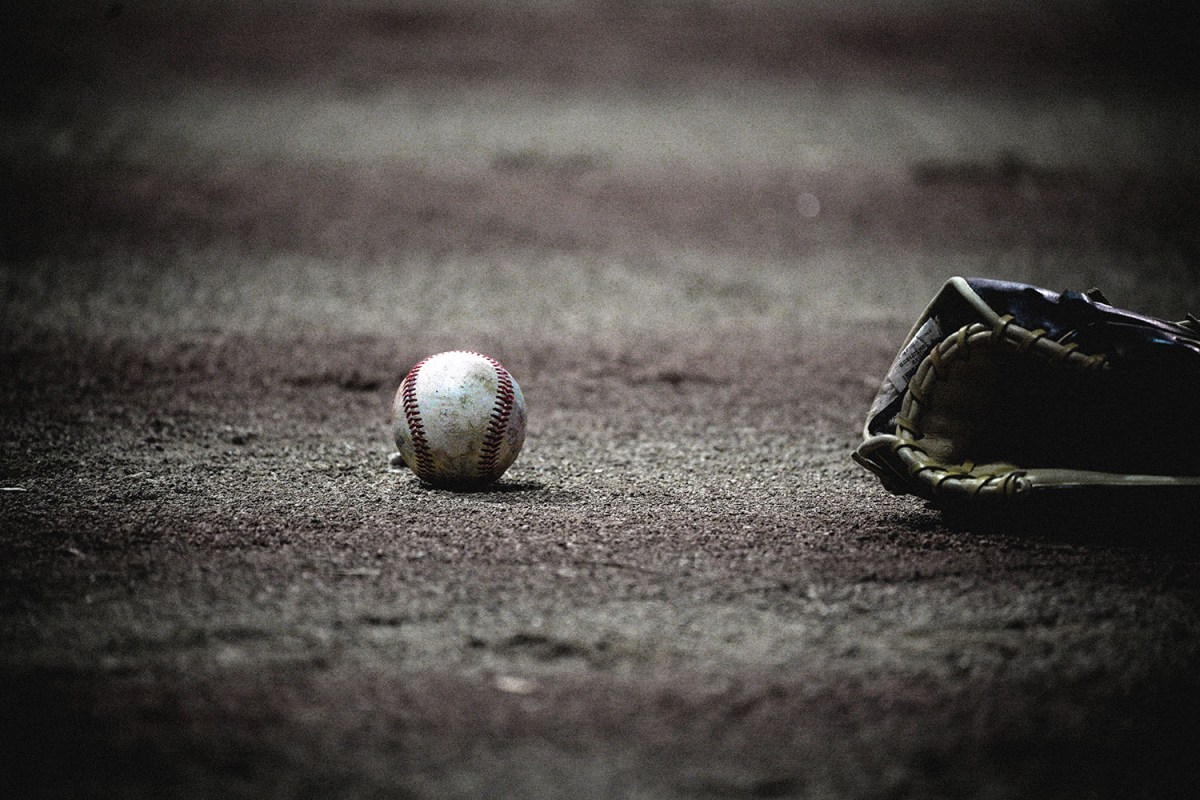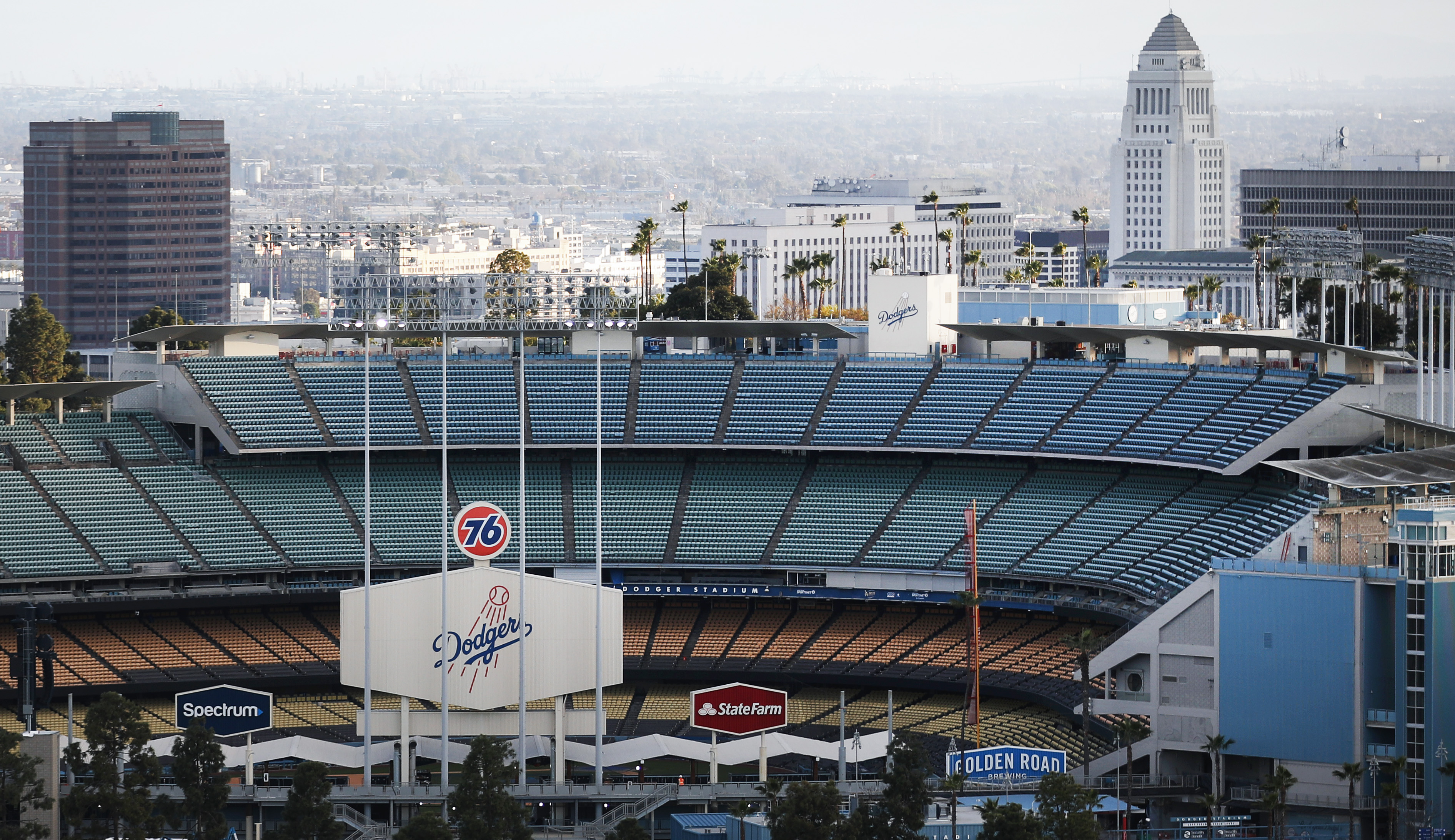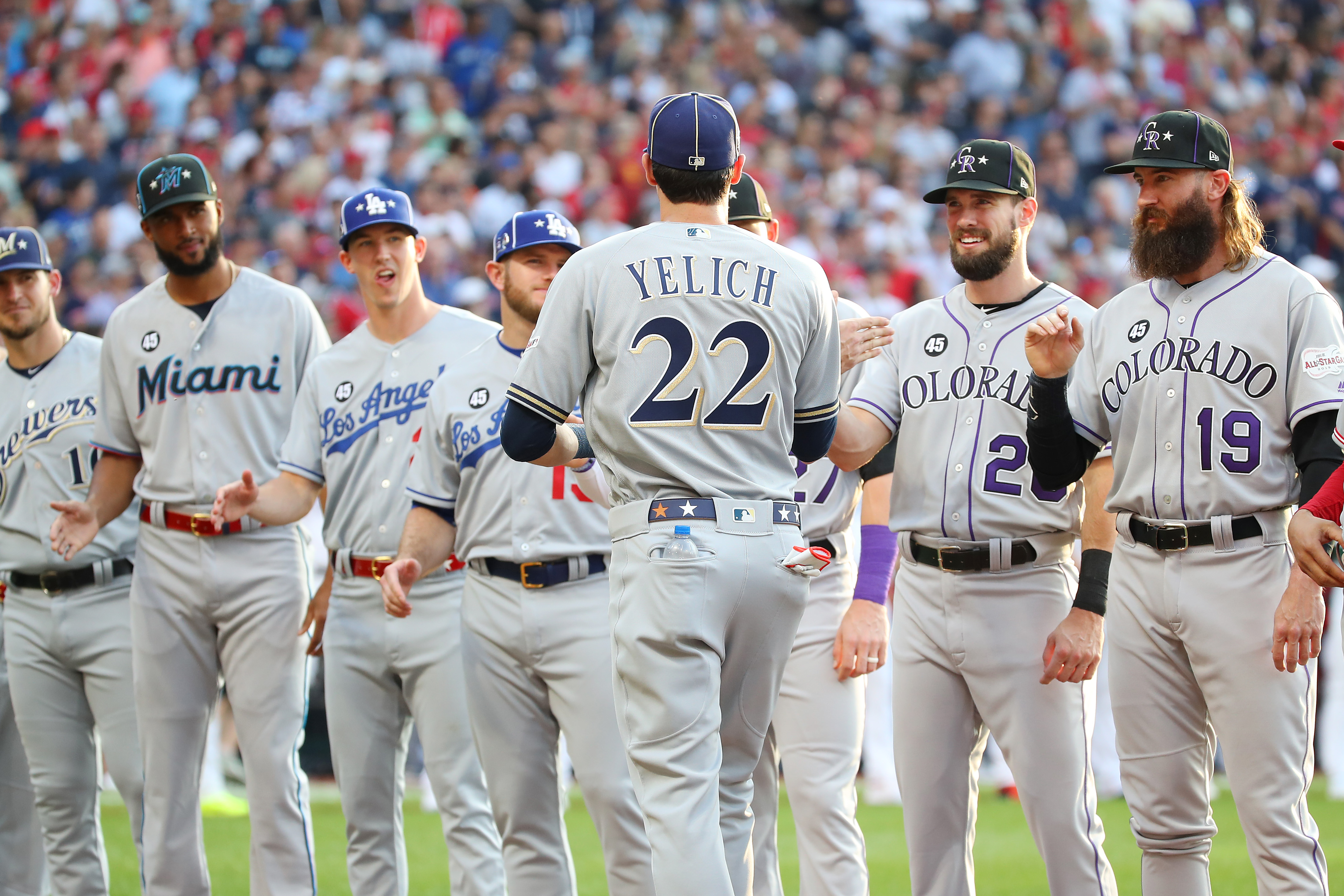Looting has taken place across the nation. Bandits and robbers have stolen the livelihood of hard-working Americans in every major city. It feels like a band of selfish criminals are content to seize what they want and leave the hollowed ruins in flames.
To be clear: this is about professional baseball.
With the NHL, NBA and MLS all slated to return in the coming weeks, Major League Baseball remains indefinitely suspended. While baseball is inherently a more socially distant sport than basketball, hockey or soccer, MLB faces a unique obstacle: its owners don’t really give a shit. After reaching an agreement with the players union in March stipulating that players would receive prorated salaries, owners reneged upon realizing that the games would be fanless. Adding insult to injury, the owners subsequently proposed a series of options that would slash player salaries beyond the already approved pay cuts.
Players are adamant that they receive the money they’re contractually owed; owners, meanwhile, cling to a clause stating that “each of the parties shall work in good faith to as soon as is practicable to commence, play, and complete the fullest 2020 championship season and postseason that is economically feasible.” The central issue (beyond the unrelenting greed of the owners) stems from the inexactness of “good faith,” which is the legal equivalent of sticking an “or whatever” at the end of a text. To be fair, empty stadiums do present a different financial landscape than what both parties naively expected in March (gate receipts make up about one-third of the league’s total revenue). Still, can the owners truly be acting in good faith when they squirrel away their team’s profits while trying to pass potential losses off to their employees?
“For me to take a pay cut is not happening, because the risk is through the roof,” said Blake Snell, a Cy Young winner for the Tampa Bay Rays. “The risk is way the hell higher and the amount of money I’m making is way lower. Why would I think about doing that?”
After months of public negotiations — or, more precisely, owners making the exact same offer over and over and over again while players tweet that they’re too incensed to negotiate — the two sides seem to be finally talking, representing a mutual interest in starting the season. Although the owners have seemingly agreed to pay the players pro rata, the number of games remains an issue—the owner’s newest proposal calls for a 60 game season, which the players deem too few.
As a result, the only way to absolutely ensure a season would be if Rob Manfred, the league’s commissioner, unilaterally mandated one. Over the weekend, Manfred avowed that baseball would “100 percent” be played this year, to which the MLB Players Association responded excitedly, just wanting to know “when and where?” Upon realizing, however, that “unequivocally, we are going to play Major League Baseball this year” meant that he’d actually have to do stuff, Manfred backtracked and said he was “not confident” about a season. His reason? He thought the MLBPA was being mean. In reality, Manfred is most likely trying to stall so that he can shorten the season to an owner-friendly number of games — if he were to announce a start date today, it would leave room for many more games than the 60 that the owners desire.
Through it all, one constant remains: the owners want less baseball. The sport’s most powerful men clearly view their clubs as investments and competitive entities second, and this squabble is indicative of the ruinous effects of a worldview governed purely by monetization. There’s not much functional difference between Derek Jeter buying the Marlins, stripping away any useful players and riding the hollowed-out shell to profits and a company like Alden Global Capital doing the same with The Denver Post. Or private equity firms making fortunes for investors by acquiring health-care-related operations and then loading buyers — sorry, patients — with expensive procedures and debt. This isn’t to begrudge anybody that’s trying to secure the bag, but rather to say that it’s very bad when vultures exsanguinate beloved and necessary institutions for a quick buck.
Baseball is an especially easy target to be right-sized because its economy is built upon a glaring inefficiency: the myth that players will be rewarded with bloated contracts at the tail end of their prime as a reward for years and years of bel0w-market salaries. Recently, front offices have discovered they don’t necessarily have to pay for on-field production, with the Tampa Bay Rays providing a blueprint for how a penny-pinching juggernaut can be conjured from spin rate and launch angle alone. While the players have been collectively stiffed, the sport itself has never raked in more money. Amid a pandemic and league-wide labor revolt, the MLB somehow agreed to a 10-figure national television contract, even as its franchises continually cry poverty. On the whole, teams hoard more money than they ever have before: revenue (even adjusted for inflation) has more than doubled since 2001 even as team payrolls have only risen by about 40 percent.
For the last few years, the owners have turned scrimping into high art, manipulating service time and strangling free agency in the process; in other words, it’s clear that Excel has become more important than excelling. Manny Machado and Bryce Harper, two future Hall of Famers in the fat part of their prime, languished in free agency for months because they wanted contracts commensurate with their worth. At the same time, the Boston Red Sox, just 15 months removed from a World Series victory, blew up their roster in order to avoid paying their best player since Ted Williams. The owners have long sought to bind players to longer and less lucrative contracts; now, they’re fighting to not pay those contracts at all.
The grimmest part, though, is that the owners’ money-saving efforts will probably end up costing them more than it would to simply play baseball. In this light, perhaps it’s too generous to attribute the owners’ stance to some sort of Logan Roy-esque power play. Maybe this is just an epic temper tantrum by a bunch of doddering billionaire piss-babies suddenly realizing they bought a sports team, not a fiefdom.
Either way, there’s no guarantee that even if baseball returns, the fans will follow suit. It’s fatalistic to imply that this is the end of baseball and it will be swiftly overtaken by a mediocre soccer league, but it still reveals how inessential America’s national pastime has become. When baseball returns for its truncated “season,” it’ll hardly be essential viewing, competing for attention with every other professional sport, a pandemic and the most apocalyptic presidential race since the last one. Baseball has always been our cultural white noise, 162 games of Music for Airports; it has never inspired the sheer fervor of football, nor the cultural clout of basketball. People watch baseball because it’s … nice. And during this coronavirus-inspired hiatus, the owners essentially murdered any such niceness — not that they ever understood it to begin with.
The Charge will help you move better, think clearer and stay in the game longer. Subscribe to our wellness newsletter today.
























